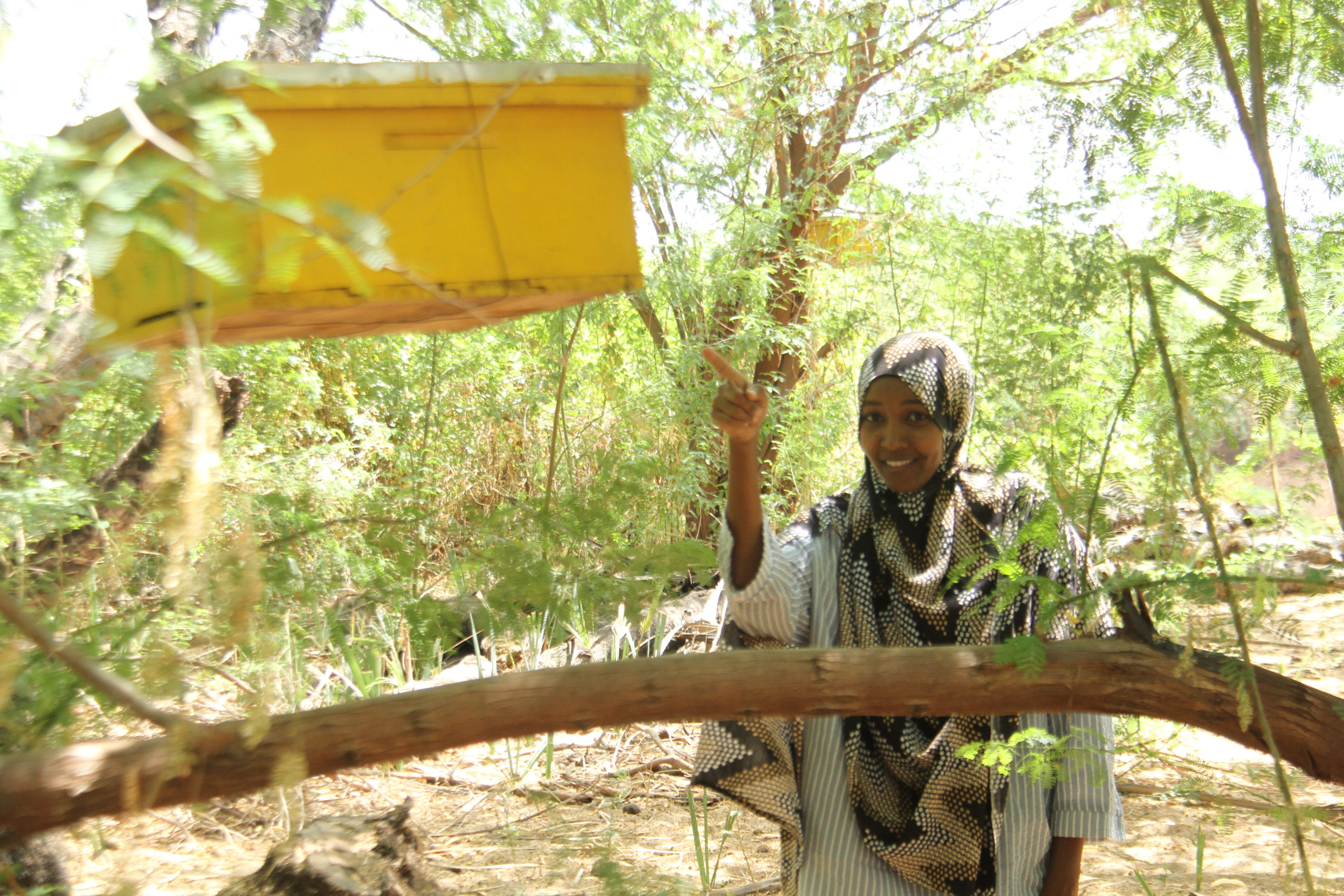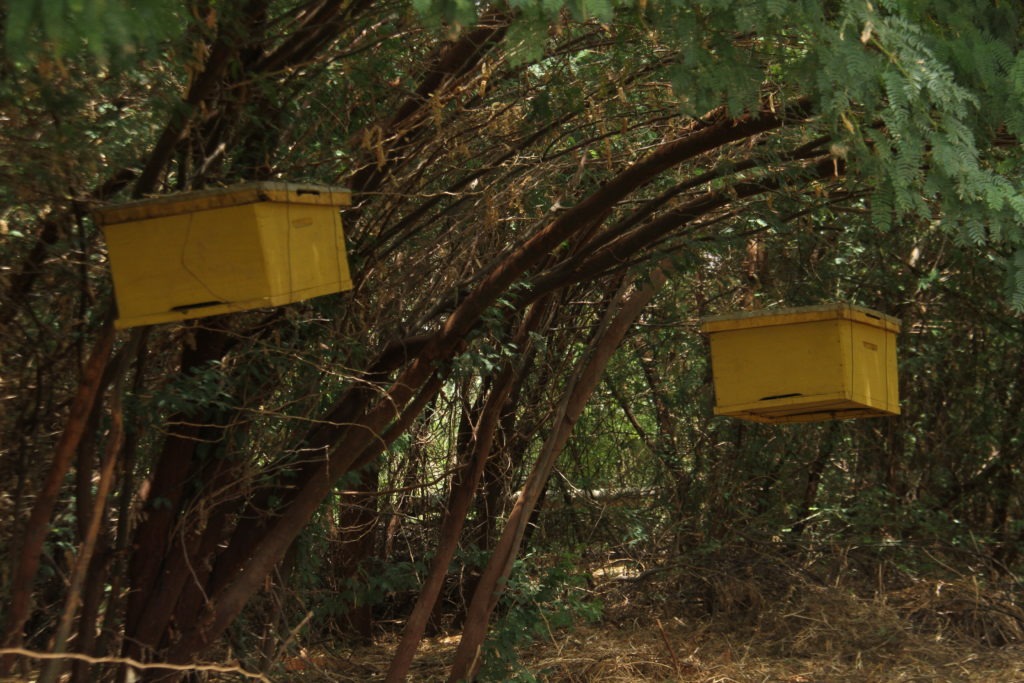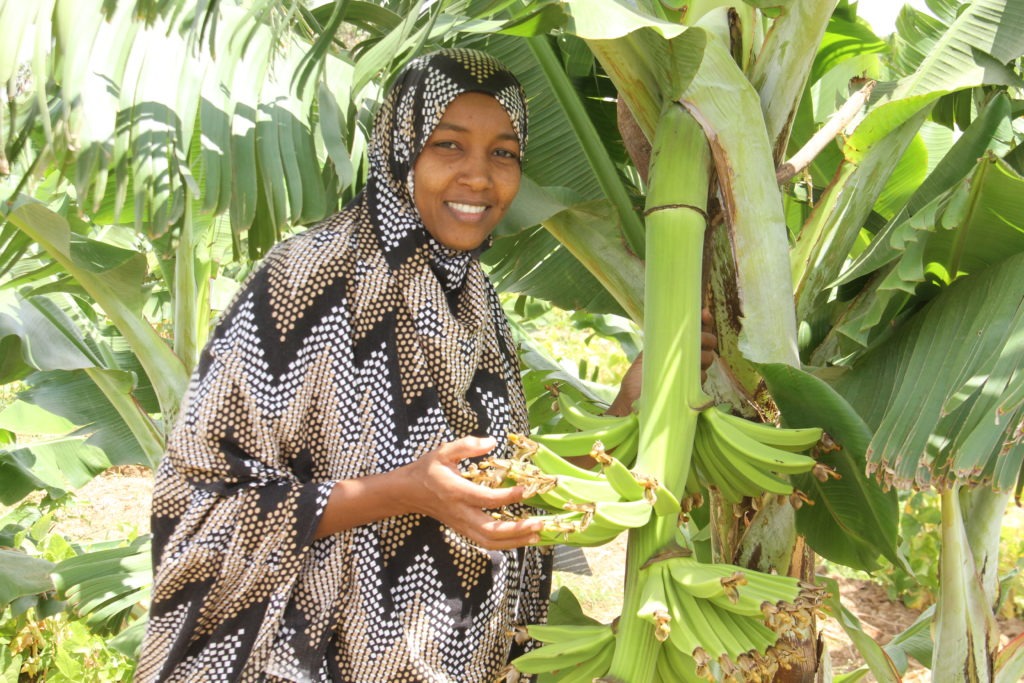
In many parts of Northern Kenya, overgrazing of cattle and erratic weather patterns are increasingly degrading the quality and quantity of livestock pasture. This has reduced animal productivity and caused the death of cattle in some cases. To ease reliance on pastureland, farmers like Ebla Hassan are pivoting into diversified livelihoods, such as beekeeping.
However, starting a beekeeping venture was not easy for Hassan. The practice of beekeeping is mainly dominated by men in the area. Beehives are kept up in the trees, requiring one to climb up high to retrieve the honey, perhaps explaining why some women keep away from the venture.

At first, Hassan lacked basic beekeeping skills. For example, the wrong positioning of her beehives made heavy winds blow directly into the apiary and drifted the bees from their pathways. This affected the hive occupancy rate and volume of honey production. As a result, she fell short during the first harvest, obtaining only three kilograms of honey from four of her 10 hives.
In 2020, the Feed the Future Kenya Livestock Market Systems Activity, the World Food Programme, and the County Government of Garissa organized a training of trainer’s workshop for beekeepers. Hassan was one of the trainees. After the workshop, she made important changes to her apiary, including positioning the beehives in suitable areas within her farm. With subsequent training from the Activity—funded by USAID and implemented by ACDI/VOCA in coordination with partners Mercy Corps, Smart Regional Consultants, and the BOMA Project—she enhanced her skills in apiculture and increased her yields. Hassan learned that with modern technology the beehives could be put at lower levels to ease access.
In 2022, her beekeeping venture proved to be a gamechanger in her life. She had grown the number of beehives to 60, most of which were fully colonized. She also harvested honey four times that year with each hive producing approximately five kilograms of honey. With a ready market, Hassan sold a kilogram of honey for $10.

“The training worked miracles,” Hassan said. “No sooner had I finished restructuring the apiary than all the hives got fully colonized. Because of the growing demand for the pollen, I started growing bananas, beans, and melons, which are good sources of pollen for bees, as advised during the training.”
Hassan hired six permanent employees for the day-to-day running of her farm. She has plans to construct a modern beehive cage to protect both the bees and hives from predators. To meet the demand for fresh vegetables and fruits, she also ventured into horticulture. She supplies her local produce in markets alongside her honey. Hassan now engages in apiculture, horticulture, and livestock production.
In addition, she mentors members of the Qahira Women Farmers Association who are interested in beekeeping. She serves as the Secretary General of Garissa Farmers Network, a non-profit organization she founded in January 2022 to bring together farmers in agribusiness. Currently, the organization has 95 members from across the county.
Through training, the Activity strengthens and supports women in agriculture to ensure they get the most efficient and enabling environment to support their economic growth. To date, the Activity has supported 47,949 women to participate in United States Government programs.
Learn more about our work in Kenya.
Learn more about the Feed the Future Kenya Livestock Market Systems Activity.







